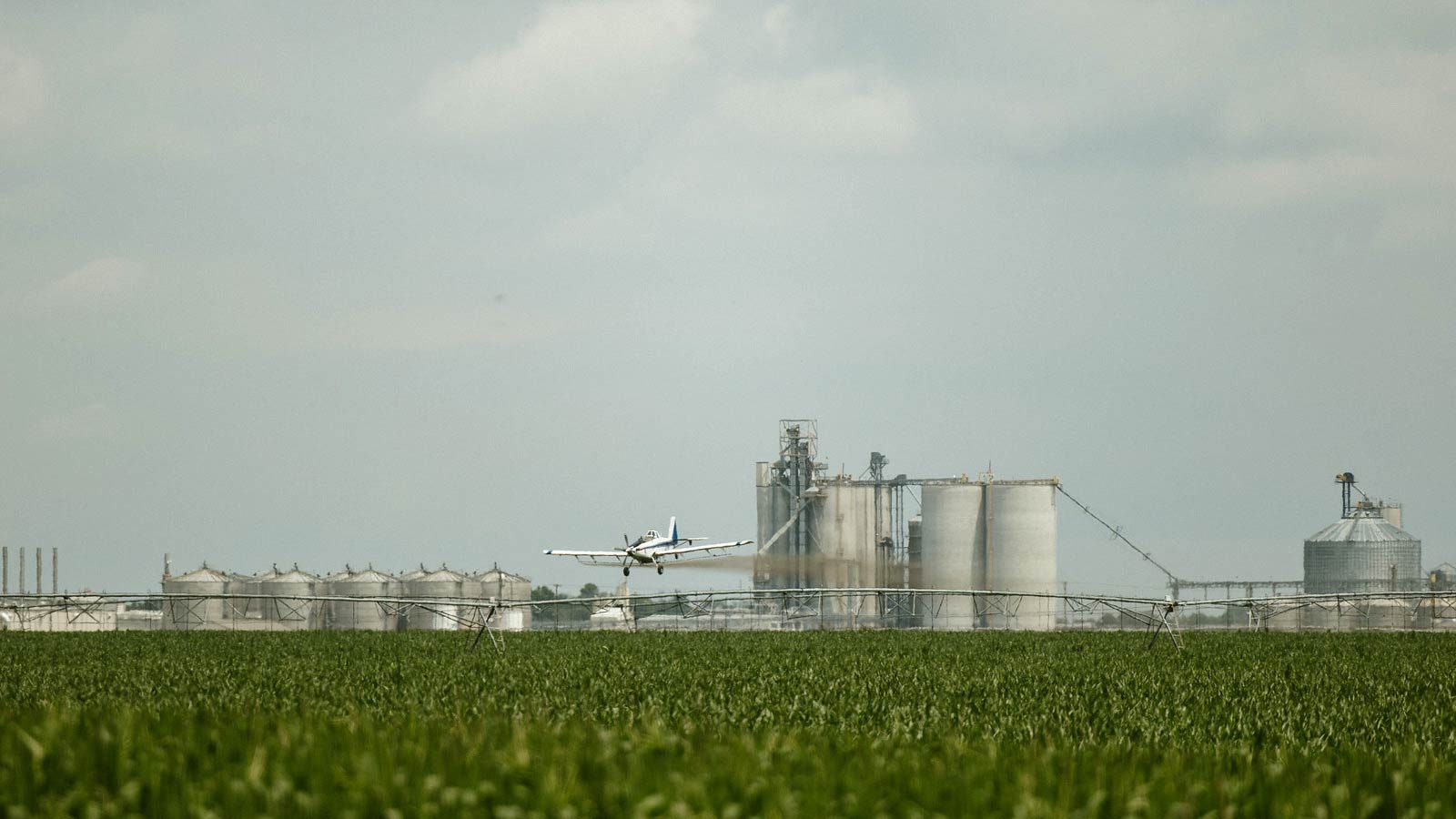Real change happens when people unite for a common goal. By working together, we can create a stronger collective impact. Nebraska corn farmers do just that with the Nebraska corn checkoff program, which creates a range of benefits for all corn farmers in the state.
The checkoff is used to create the largest return on investment for the farmers who pay into it. By working to develop new markets and grow demand for corn and corn byproducts, increasing farmer profitability and promoting the product grown in the state, the checkoff is certain to grow the initial investment a farmer makes Through the Nebraska corn checkoff, farmers drive innovation and address challenges they face more effectively together than any one person or group could alone.
What Is a Checkoff Program?
Commodity checkoff programs like the Nebraska corn checkoff use farmer contributions to fund initiatives and programs that benefit all farmers. Many agricultural industries, including dairy, beef, cattle, pork, soybeans and wheat, utilize checkoff programs to enhance the success and sustainability of their products. By working collaboratively, corn farmers and other agricultural producers improve product quality, increase market demand and ensure the sustainability of their industries.
Who Started the Nebraska Corn Checkoff? How Does It Work?
The Nebraska corn checkoff program has been adding value to the corn farming industry for nearly 50 years. It was created by the Nebraska Legislature in 1978 through passage of the Corn Resources Act, an effort supported by the state’s corn farmers. This included support from the Nebraska Corn Growers Association, a group of dues-paying farmers who promote and protect the interests of the state’s corn farmers.
All corn growers in the state contribute a one-cent per bushel to the Nebraska corn checkoff the first time their corn is sold. That contribution is managed by the Nebraska Corn Board, which uses it to enhance profitability and expand the demand/value of corn and corn byproducts. The nine farmer members of the Nebraska Corn Board do this by investing the funds in market development, research, promotion and education. Programs in these areas could include building both domestic and international markets for corn, biofuels and other corn byproducts.
Benefits of the Nebraska Corn Checkoff
The Nebraska corn checkoff supports market development, corn research and education programs that enhance the profitability and viability of Nebraska corn.
Market Development
The state’s corn checkoff program plays a vital role in promoting worldwide demand for corn and corn-based products. This not only includes domestic and international corn trade, but also opening new markets and growing existing markets for ethanol biofuel made from corn and the valuable co-products created during the ethanol-making process. It also promotes the demand for meat from livestock raised with corn as part of a nutritious diet.
By expanding markets and encouraging global use of corn-based products, the Nebraska corn checkoff increases the demand for corn grown by local corn farmers. This is especially important for farmers in Nebraska, which is a leading producer of cattle in the country, and second in production of ethanol and third in corn production.
Research
The Nebraska corn checkoff invests in research initiatives that directly benefit farmers. Some research programs focus on enhancing demand and adding value to corn. Others develop new uses for Nebraska corn, improve production practices and advance technologies that increase the economic viability and sustainability of corn farming. Many of these programs are partnered with the University of Nebraska-Lincoln research scientists and graduate programs who invest in the corn economy and diverse landscape programs within the state.
In addition, the program also collaborates with corn checkoff programs from other states and other industry stakeholders to support important research projects that benefit the nation’s corn farmers.
Education and Promotion
Checkoff dollars are used to educate consumers and the producers about the Nebraska corn industry. This helps build support for the industry and corn products by increasing understanding about corn farming and corn as a safe, nutritious product.
Education also improves knowledge of just how important corn is as a food, fuel and raw material for many products used in daily life. This creates trust between farmers and consumers, increases confidence in corn and corn-based products—and, as a result, grows demand for corn grown in Nebraska. It also focuses on youth education regarding agriculture in Nebraska.
Overall, the Nebraska corn checkoff is a valuable way for farmers to get the best return on their investment for the corn they grow and, thus, improve the success of their farms.




